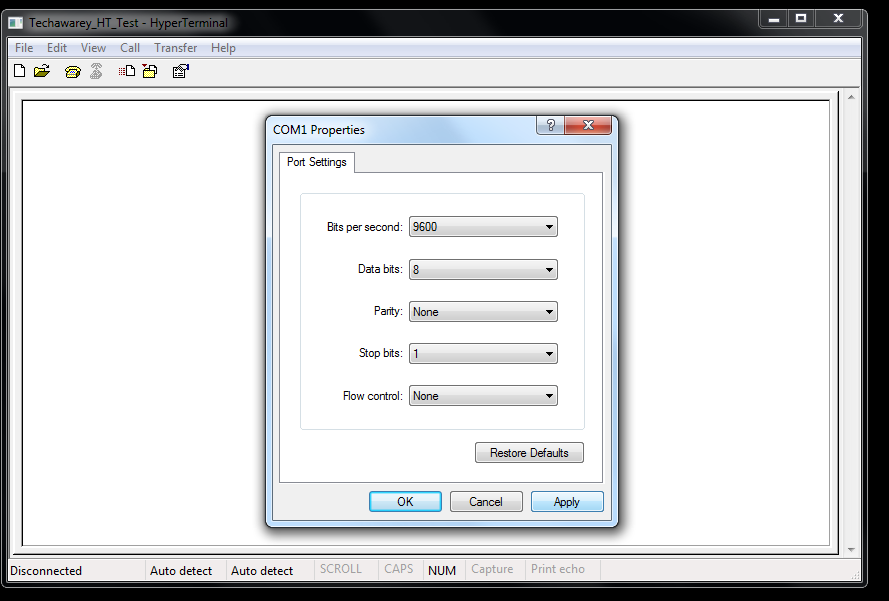How To Use Hyperterminal
Related Articles
- How To Use Hyperterminal With Notifier 2020
- How To Use Hyperterminal With Notifier 2020
- How To Use Hyperterminal
To use MS HyperTerminal to send AT commands to your mobile phone or GSM/GPRS modem, you can follow the procedure below: Put a valid SIM card into the mobile phone or GSM/GPRS modem. You can obtain a SIM card by subscribing to the GSM service of a wireless network operator. The Removal of HyperTerminal from Windows 7/Windows 8/8.1 or Windows 10 – Reasons (Why) Shell access can be controlled using Windows PowerShell and ‘winrs’ command. Alternatively one can use the ‘WINRS’ command direct from command prompt. Beyblade metal masters game. Phone and Modems option is the alternative of HyperTerminal to troubleshoot any modems related problems.
- 1 Bridge a Wireless Connection With a Linksys Router & a Netgear Router
- 2 Set Up a Router for Telnet
- 3 Receive a Serial Signal With Ethernet
- 4 Forward a Port in Cmd
Most routers have a serial port used to connect to the serial port of your computer. Using Windows HyperTerminal, you can connect to the router and enter the commands necessary to set up the router on your network. When you connect to the router, the first prompt shown is the login prompt. Use the login that you originally set up when you installed the router to manage its services.
How To Use Hyperterminal With Notifier 2020
1.
Connect your computer to the router using the serial cable. Connect one side of the cable to your computer's serial port and the other side to the router's serial port.
2.
Open the HyperTerminal software in the Windows 'Accessories' program group. When you open the software, a connection window displays.
3.

Type 'Router' in the connection name text box. Select 'COM1' from the drop-down box. Change the baud rate to '9600' in the next configuration window and click 'OK' to connect to your router.
Jana gana mana full song. Type your username and password to connect to the router's configuration console. Press 'Enter' to log in.
References (1)
About the Author
Jim Campbell has been a computer engineer for over five years. He excels in hardware repair, computer programming and troubleshooting, and software design. He is currently attending Florida Atlantic University, pursuing a master's degree in computer and electrical engineering and fine-tuning his technical writing abilities.
Photo Credits
- Thomas Northcut/Photodisc/Getty Images